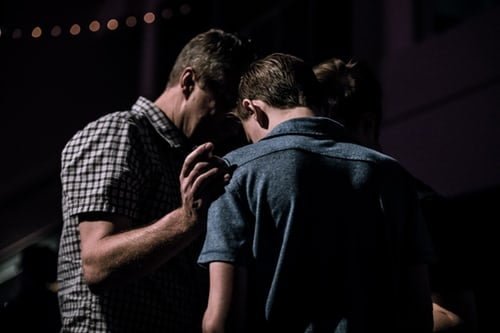⏱️ Estimated Reading Time: 4 min read
In a lesser well-known allegory, Hinds’ Feet on High Places, author Hannah Hurnard writes of a protagonist named Much Afraid who is born with club feet. She encounters the Good Shepherd and tells him of her desire to dance upon the high places like the deer. He then offers to plant the seed of love into her heart so that she will be changed from her misshapen figure to one that has hinds’ feet able to travel to the high places. This story of salvation and sanctification is based upon Habakkuk 3:19, which says, “God, the Lord, is my strength; he makes my feet like the deer’s; he makes me tread on high places” (ESV).
Many Christians struggle with the idea of going to the “high places” in their relationship with God. We read with wonder of Moses meeting with God on Mount Sinai in Exodus 34 and long to have some kind of mountain top experience that leaves us forever changed. It doesn’t take long to scan the evangelical landscape to see that conferences, churches, parachurch ministries, books, etc. are all selling an experience that’s guaranteed to be the missing link between you and a dynamic relationship with God. Yet, after the initial feelings and excitement of these events fade, nothing is left but the sense that something is missing; the void is still there, and now there’s guilt creeping in because once again, you aren’t as close to God as you should be and you aren’t praying with as much zeal as you should be. Now it’s back to square one and the not so patient waiting for the next big event to fill the hole. This is akin to having cancer and expecting Tylenol to do the trick, which is not how Christians were made to experience communion with God.
The Glory of Private Prayer in the Christian Life
How then does the Christian shed their club feet and climb the mountain to meet with God? Prayer. Specifically, private prayer or what the Puritans referred to as “closet prayer.” The answer seems simple but so boring to many. Prayer is not glamourous work, nor is there likely to be a trendy conference centered on the topic of private prayer, yet this is precisely the remedy to our illness. Prayer is something that should come naturally to the Christian. Indeed, Martin Luther once quipped that “to be a Christian without prayer is no more possible than to be alive without breathing.” However, most Christians fail to experience the benefits of private prayer. It is within the context of private prayer that one can enjoy sweet communion with God and grow in love and holiness.
Private prayer, as one Puritan said, is like shaking a tree so that the blessings of heaven come down. Thomas Brooks said of private prayer that it is the “privy key of heaven that unlocks all the treasures of glory to the soul.” We must be willing to put in the hard work of prayer. It takes time to see real change.
Four Practical Guidances to Engage in Private Prayer
I’m often asked where one should begin or what should be said. First, set aside time every day. Start small at first. Don’t expect to pray for three hours your first day.
Second, start small and grow over time, just like anything else.
Third,, turn scripture into prayer, especially the Psalms. W.S. Plumer, in his masterful commentary on the Psalms, says that “every inspired prayer is a promise.” Take whatever Scripture you are reading and ask God to fulfill that in your life, to make you that way, to reveal the truths of that Scripture to you.
Lastly, read the prayers of saints who came before us. There are many books of prayer, and any of them would be helpful. The Puritans were masters of personal prayer, perhaps begin with them. Whether it’s the Valley of Vision or Piercing Heaven, Puritan prayers are enriching to read and help provide language for us in our own prayer life. Storming the gates of heaven, as Thomas Watson wrote, is something that takes effort and perseverance. Seeking the Lord is worth it. Your hard work will not go without reward. God himself meet you there and grant to you blessing beyond your imagination.



